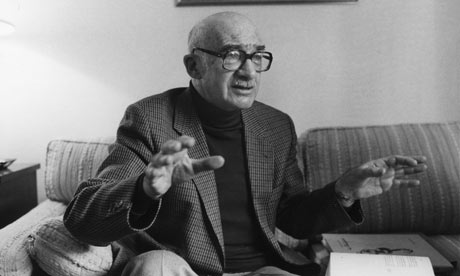An Acorn Gives Birth to a Tree, the Tree Gives Birth to a Fiddle
An acorn gives birth to tree, the tree gives birth to a fiddle
and you give birth to my star, so the night will be true.
You give birth to it far from here, its light belongs to me and to you,
you give birth to it where no leaf fades, nor anyone’s smile.
We haven’t been of this world for a score of silences now,
a heroic cosmos will not allow our joint death.
The earthly, the real, is real as earth and valid
and death no longer has any power over our breath.
His kingdom does not extend to the green Tree of Life,
what is past has not passed, time is not yet ripe.
Escaped from the clamor, our silence is love,
new images stream from the weeping eye of the soul.
The paired twitch of two silences in one
approaches perfection on a rung of its own.
This wonder-without-a-name tells of its deeds,
the language of atoms has a folksong’s simplicity.
*****
You Separated Moment
You separated moment, you resemble your sister,
millions of light years ahead. An orchestra’s sound
is easier to seal in mid-air, to imprison there,
than it is to return you–a moment–to the ground
and know you are mine again; and also to experience the pleasure,
the harvests of your plow-mouth; that raw, vernal flow,
the seeds of kisses in the teething gardens and to drink
your music a second time, a second time around.
Your gentle quiver still crouches in me in a nest of fingers,
as I would touch a small bird, the size of the pupil of an eye.
A golden moment-bird with wounded sweetness,
and I want to pull it back into my empty nest of fingers.
But you are farther than thought, you are as if unborn,
millions of lightyears ahead and from there you barely burn.
I have not even been able to accompany you there
and experience our joy a second time, a second time around.
*****
Recollection of Aaron Zeitlin
Recollection of Aaron Zeitlin: in my room in Tel Aviv
at the edge of the sofa, he reads a stanza,
then a second and a third, about trees in a wood
where every tree is dressed in tefillin and tallis.
A dream. Any old dream will not be amused by such a thing
as time for real talk, since it loves to have some fun:
As soon as Zeitlin had read me those lines in Tel Aviv,
the elegiac poet found himself in Manhattan.
Now the writing table has awoken—the altar of the poet.
I jot down the poem and send it off to Zeitlin: inviting
him to interpret the mystery for me, and also to decide:
was he alone or were we both the authors of the enclosed lines?
And a response doesn’t take my friend too much time:
“I wrote the poems in your dream from a distance…”
(And he added commas to the text with a different ink,
so I would finally see the souls on the trees dressed in tallis).
*****
What Sort of Potion Should I Give the Night?
What sort of potion should I give the night so it will go on with its astonishments?
Its heart is pounding like a horseback rider’s in flight from a blazing forest.
Perhaps the druggist is awake in the drug store, my neighbor from the next street over?
He’s mixing snake tears and herbs in a bone boiler.
Perhaps I should quickly call a doctor? Such a heart cannot be wholly appraised…
Honestly, what will I do if this heart should break?
*****
Abraham Sutzkever, born in 1913 in modern-day Belarus, is a legendary figure of the Yiddish literary world. A survivor of the Vilna Ghetto, he immigrated to Mandatory Palestine just before the founding of the State of Israel and passed away in Tel Aviv in 2010, at the age of 96.
Maia Evrona’s poems, as well as excerpts from her memoir on growing up with a chronic illness, have appeared in Prairie Schooner, New South, and elsewhere. More of her Abraham Sutzkever translations have appeared or are forthcoming in Poetry Magazine, The Kenyon Review Online and other venues.

